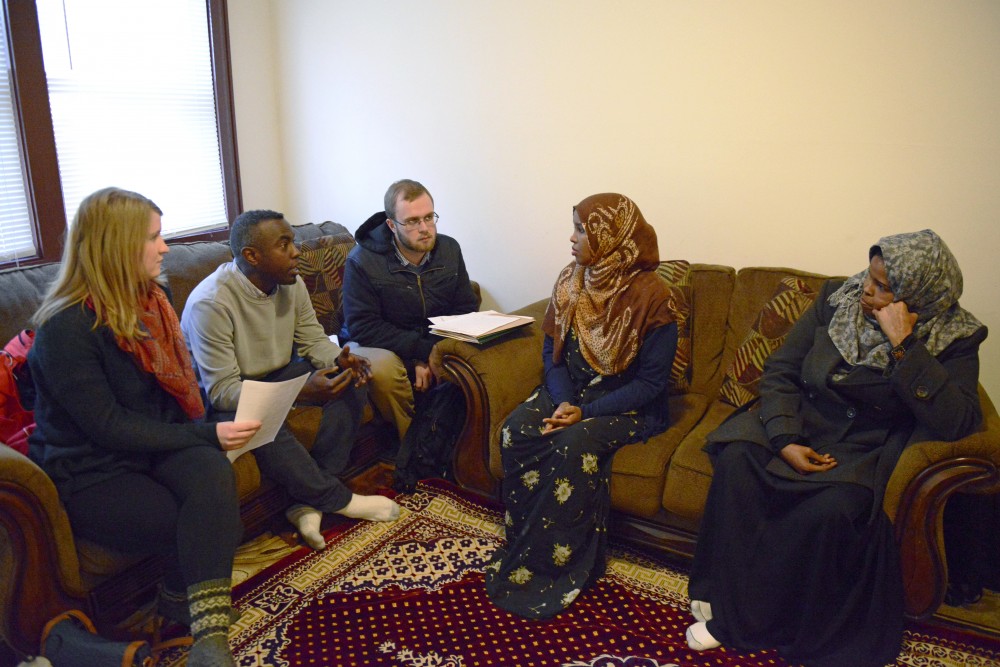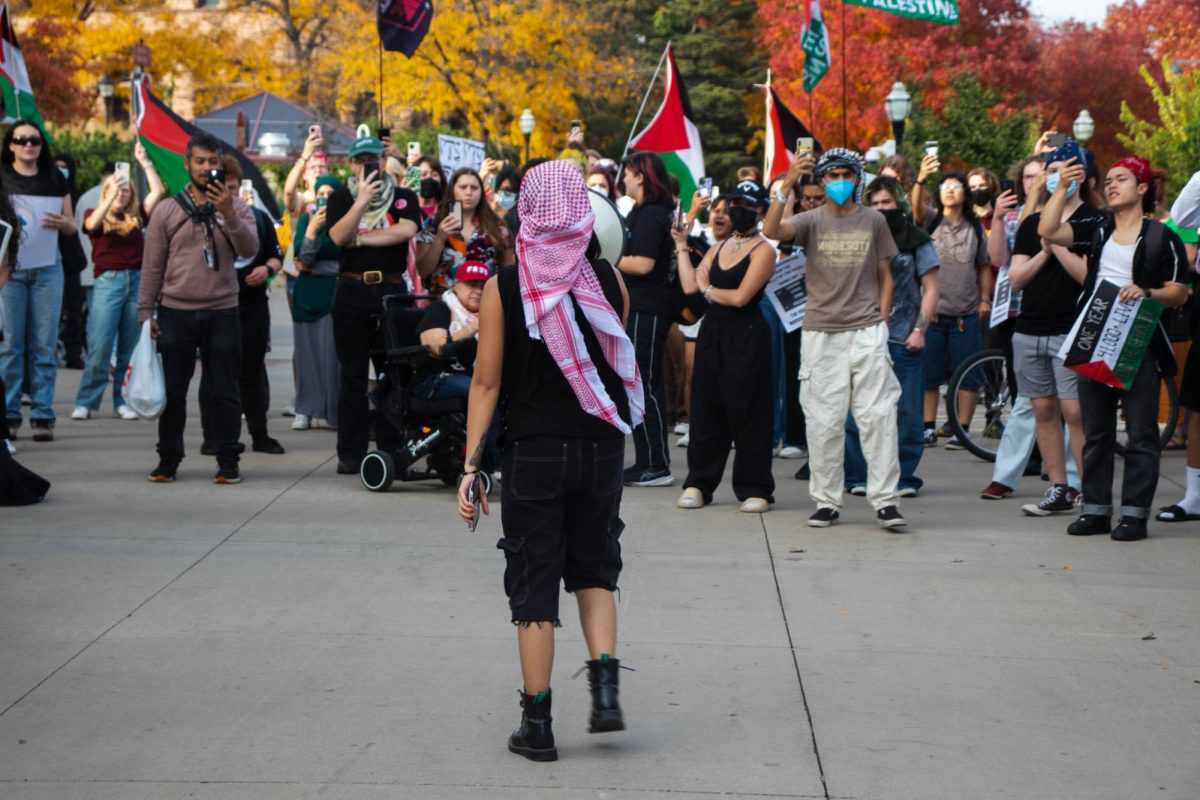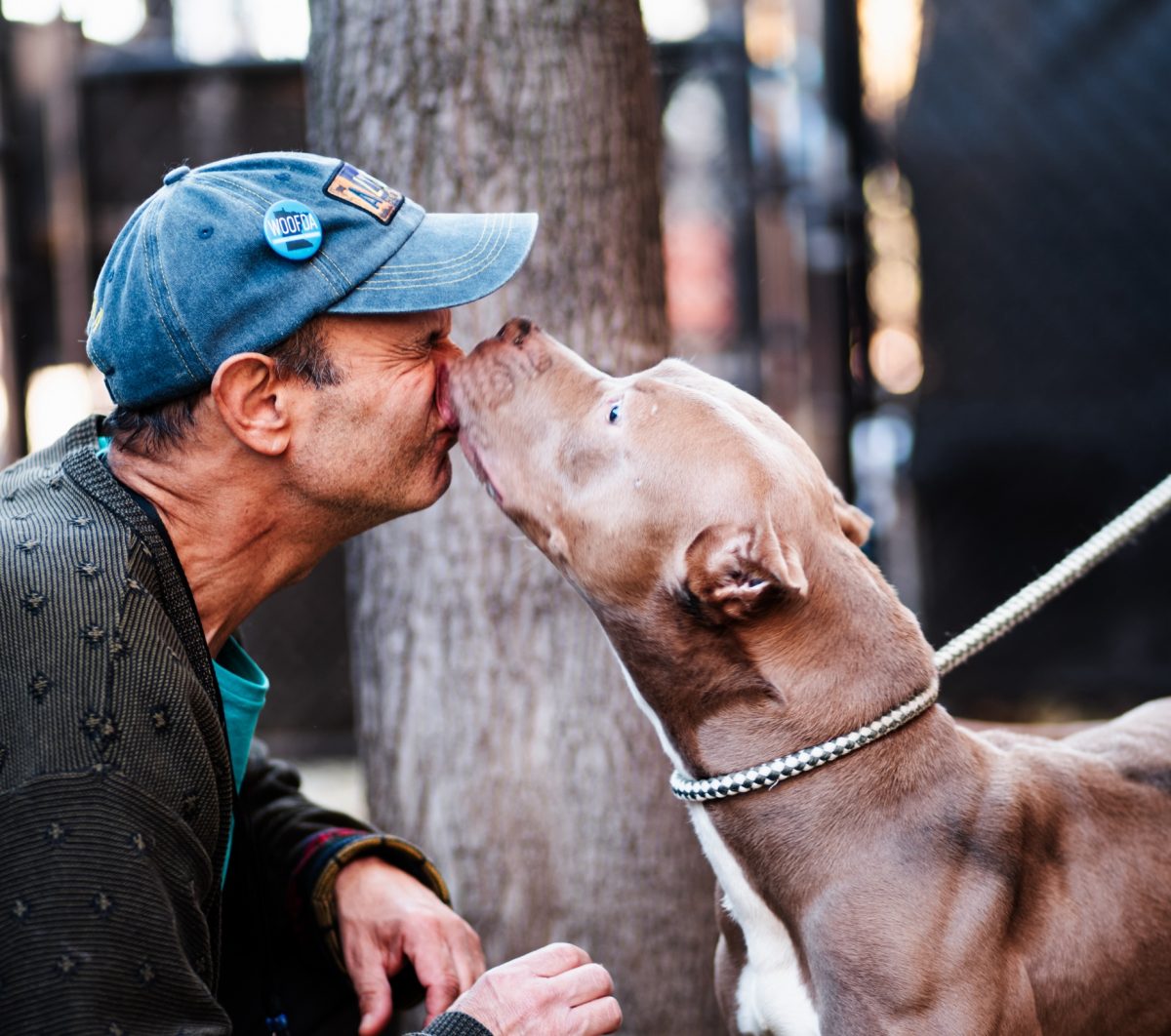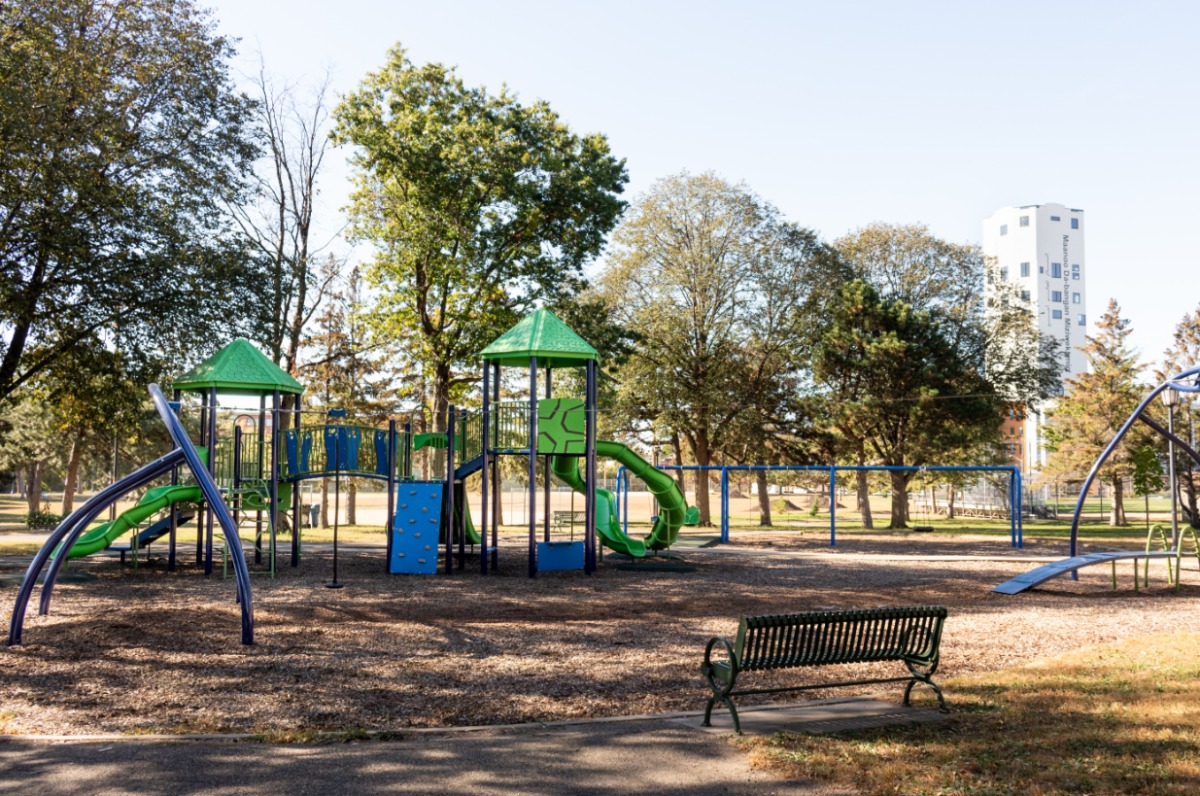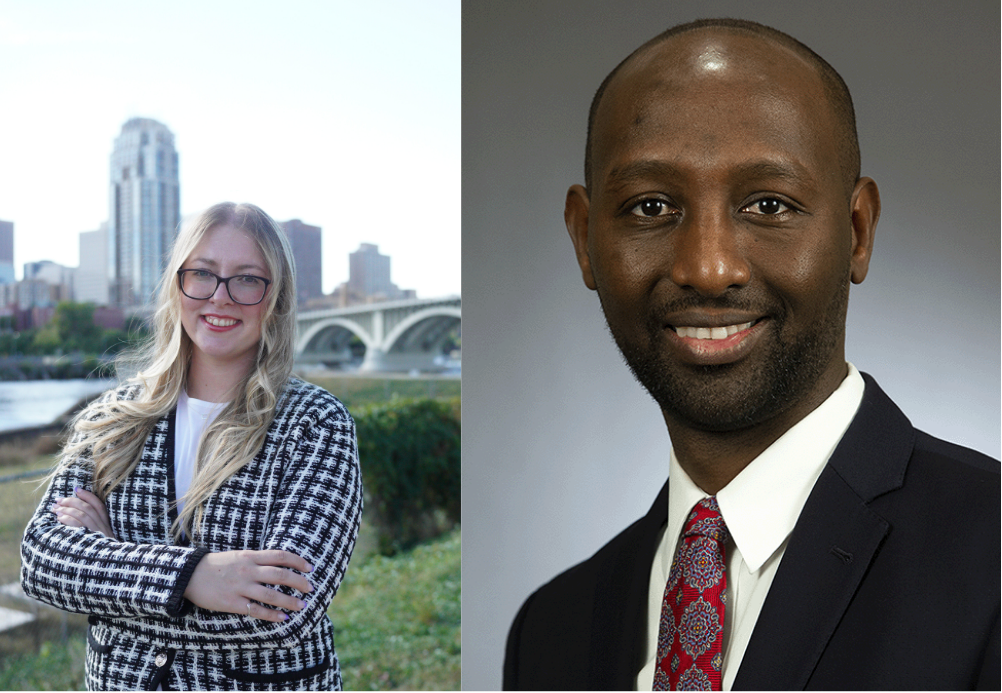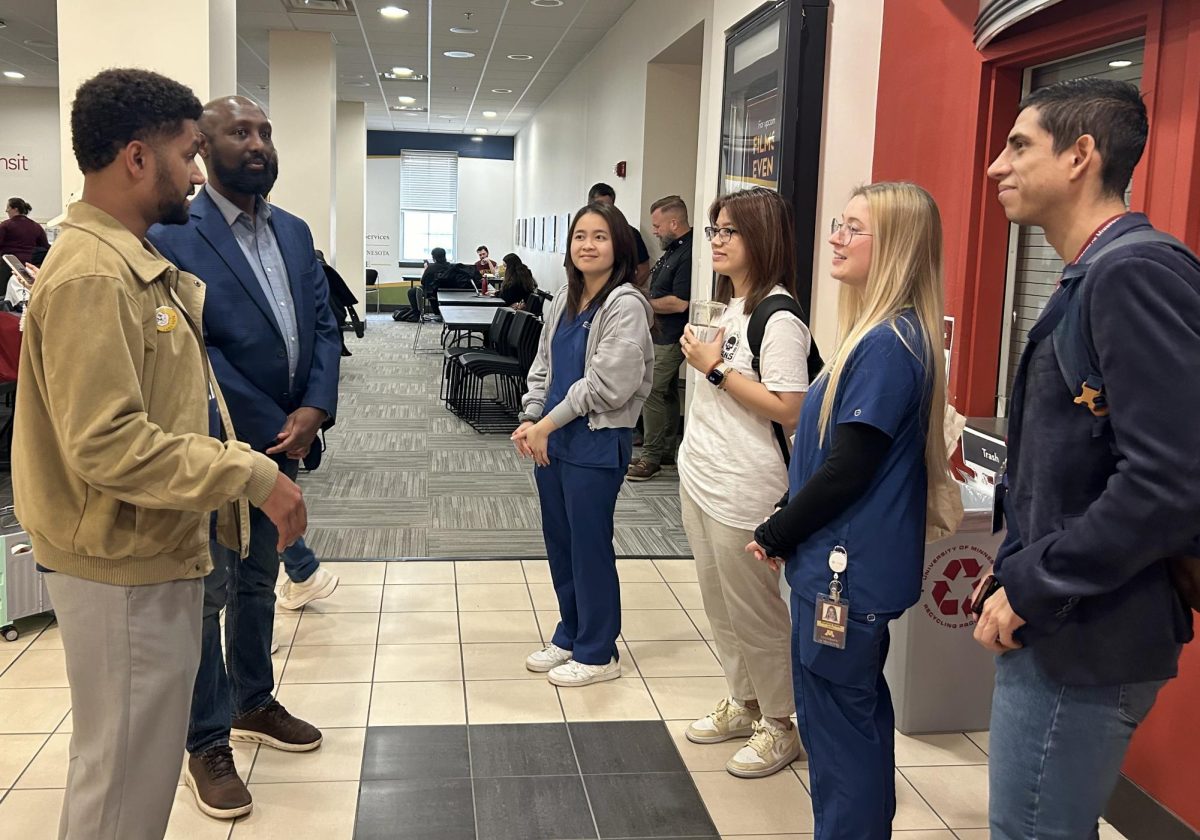Fartun Ahmed hasn’t seen her mother in 12 years.
Ahmed — a 28-year-old Minneapolis resident from Somalia — applied for an immigrant visa for her mother in 2015. Ahmed’s mother, also from Somalia, was set to depart from Kenya to the U.S. Jan. 28, two days before her visa would expire.
The day before her flight, President Donald Trump signed his executive order prohibiting travel from seven Muslim-majority countries — including Somalia.
“She already had her ticket and everything, but the … airline called her and told her that she can’t go because of the ban,” Ahmed said through a translator.
Now, Ahmed said, she doesn’t know what to do.
Ahmed’s story is one of many in Minneapolis’ Somali community. Fear and uncertainty loom as people wait to see whether Trump’s executive order will resume despite the U.S. Ninth Circuit Court’s Thursday ruling to lift the ban.
The ban was met with immediate criticism from both political leaders and the broader public. The past two weeks saw multiple protests in Minnesota and across the country.
Within days, several federal judges called the order unconstitutional and temporarily lifted the ban, allowing those stuck in airports and abroad to return to their families. On Thursday, Trump responded to the Ninth Circuit’s ruling with a tweet that read, “SEE YOU IN COURT, THE SECURITY OF OUR NATION IS AT STAKE!”
The suspension of the ban has let some refugees secure homes in Minnesota.
Hodan Mursal, a 36-year-old from Somalia, arrived in Minneapolis from Egypt on Wednesday. She was originally set to arrive near the end of January but was delayed by the ban.
“It was really shocking because 11 years … I was waiting in the [refugee] process, and when I finished the process, and after that they canceled it, I thought I had lost everything,” Mursal said.
City officials in Minneapolis have already acted against the ban in the weeks since its implementation.

At a city Intergovernmental Relations Committee meeting Tuesday, Rep. Ilhan Omar, DFL-Minneapolis, gave an emotional testimony about her personal experience with the ban and its impact on her constituents.
“This ban endangers the lives of refugees trying to reach America,” Omar said. “Fear is real for me and for many of our community members.”
And on Friday, the City Council passed a resolution condemning Trump’s ban and directing city staff to form a Sanctuary City Task Force to plan how to protect undocumented residents from deportation.
Efforts are also underway to allocate more money to the city’s Civil Rights Department, said Ward 5 Council Member Blong Yang.
Closer to the University of Minnesota, the executive order has directly impacted local leaders in the Cedar-Riverside neighborhood who’ve scrambled to address resident fears and confusion over the ban and its subsequent lift.
Neighborhood organizations such as the Brian Coyle Center and the Confederation of Somali Community in Minnesota are dealing with a community afraid and confused.
A rally held Jan. 29 at the Brian Coyle Center — attended by over 1,000 people — made it clear that Trump’s order will face stern opposition from community members and leaders alike.
“For the first time, you start questioning your place,” said Ward 6 Council Member Abdi Warsame, discussing how the ban has affected his views on America. “I’m afraid for my wife and children.”
Warsame, who was a Somali refugee as a child, still maintains ties in Somalia. He said his mother planned to visit him this summer but now doubts it will happen given her dual citizenship in the United Kingdom and Somalia.
Many in Cedar-Riverside have family in the countries listed on the order and travel frequently to those countries, said Brian Coyle Center Director Amano Dube.
The Brian Coyle Center is holding informational sessions every week, he said, educating people on the ban and connecting them with lawyers.
Many attorneys have been busy providing help and travel advice — often pro bono — for concerned community members since the ban was enacted and lifted.
Regina Jefferies, clinical teaching fellow at the University’s James H. Binger Center for New Americans, which gives immigrants free legal services, said the center helped reunite a mother with her four-year-old daughter who was stuck abroad.
The center has also advised current residents from the seven countries not to travel, she said. “It’s just so problematic for so many people, and it’s particularly being felt here in … Minnesota.”
Mohamud Noor, director of the Confederation of Somali Community in Minnesota, said citizens are coming to him scared of the ban. “[Community members are] asking themselves, ‘What’s next? Is it the registry?’”
Even individuals who are not from the seven countries listed in the order have voiced concerns, said Jana Kooren, communications director for American Civil Liberties Union of Minnesota. People who wear hijabs worry they’ll face discrimination while traveling, she said.
Christopher Lee, an attorney with AMA Law Group, said they are urging clients to act now.
“Since the executive order was lifted basically and reversed, we’ve been informing our clients now to do what they can to try to get their family members here as soon as possible,” he said.
On Wednesday night, Amino Farah and her husband Abdi Mahad were all smiles, reuniting after nearly four years.
Farah, 27, was stopped two days after the ban was enacted at a Uganda airport. Mahad, 31, said learning that he might not see his wife caused him to lose sleep and miss work.
“I felt like… [there was] no hope,” he said.
Mahad — who spent over 10 years in the refugee program and moved to Minnesota in 2013 — said being separated from his wife was hard to bear. “I wished I had my wife with me; I was feeling lonely here, and she was feeling lonely there.”
Mahad and Farah will now live together at their Faribault home.
“It’s really amazing to see him again,” Farah said.


